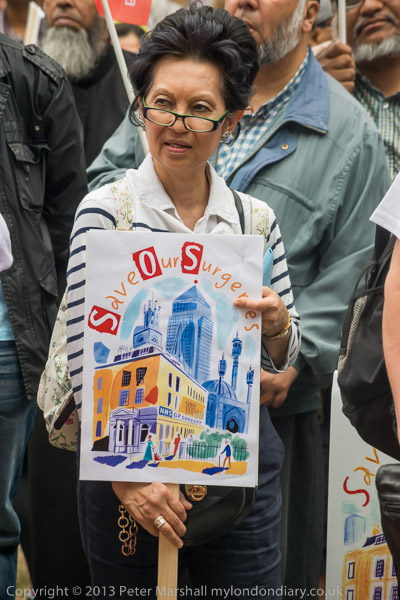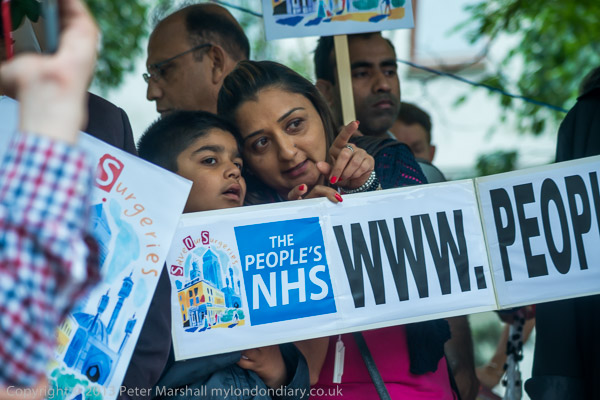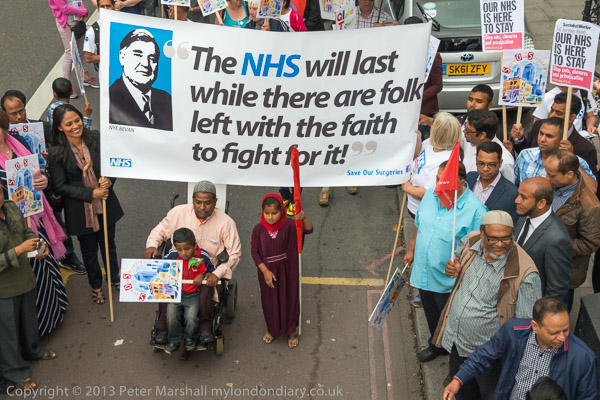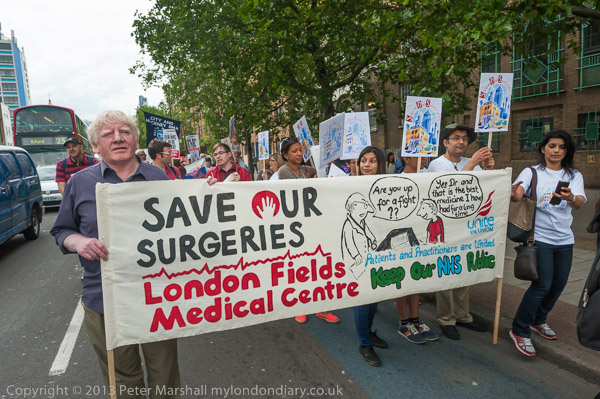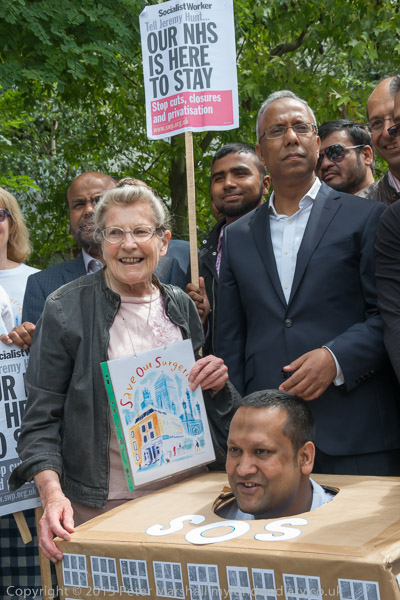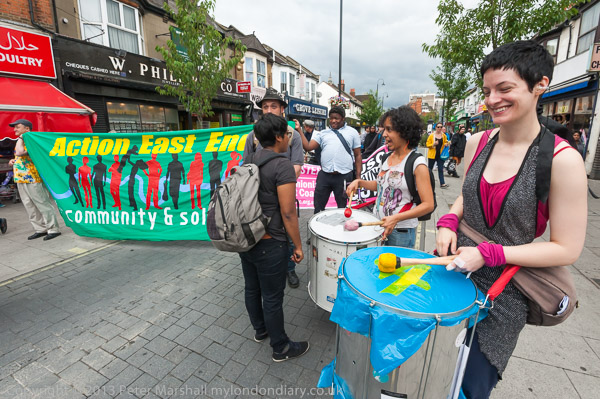Decent Housing & Saving the NHS: Ten years ago today there were protests over two of the major issues which still face our incoming government today, but which I have no faith in them facing or improving.
Focus E15 March for Decent Housing – East Ham

The housing crisis largely stems from successive governments, largely starting with Thatcher prioritising private ownership above all other ways of providing homes for people. Thatcher gave away publicly owned social housing to tenants at knock-down prices and refused to allow councils to try to replace what had been lost.
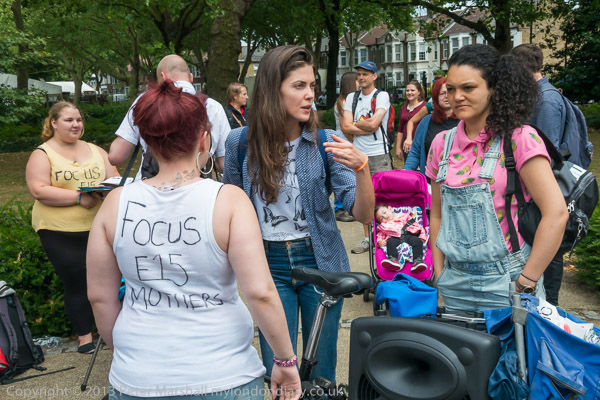
Government housing policy since have been obsessed with the idea of the “housing ladder“; housing isn’t – or shouldn’t be – about ladders to increase personal wealth but about homes, and the ladder is very definitely that in “Pull up the ladder, Jack! We’re all right” and sod those left at the bottom below.
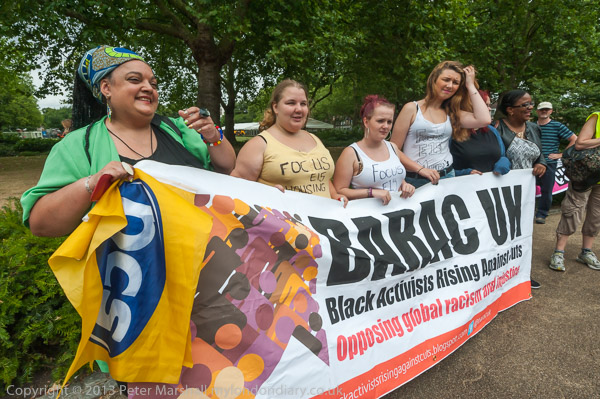
Private renting has also moved from being a way in which owners of properties derived and income from properties they owned, to a scheme where more and more tenants are paying high rents to buy properties for their landlords. It’s a crazy system and one which should be stopped.
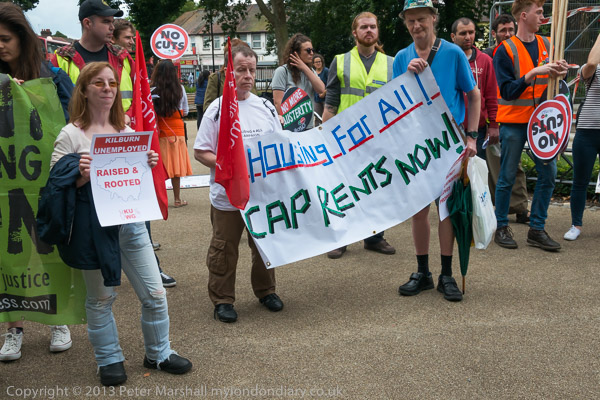
We have also seen a huge growth in properties which are largely built to be bought as investments, particularly by overseas investors, often being left unoccupied for all or most of the time. Clearly this needs to be made economically nonviable, not only because of the effects it has on the shortage of homes, but also because of the way it is seriously distorting the development of our cities.
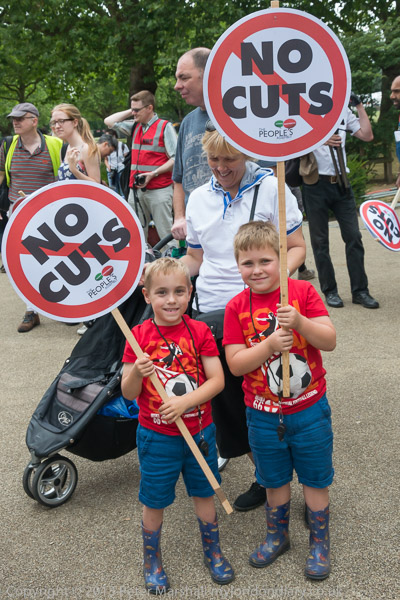
Second (and multiple) home ownership is also an increasing problem, particularly in the more desirable rural areas of the country and we need to find ways to reduce the impact of this, perhaps through taxation to provide a fund to build social housing in these areas.
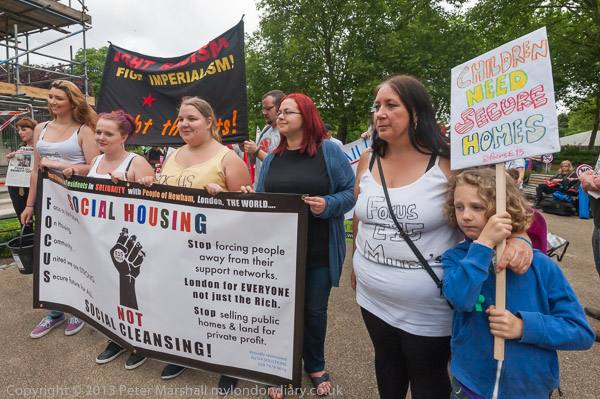
But the basic solution to the country’s housing problems is simple. Build more social housing. Any government which comes in without this as the main thurst of their housing policy will fail to improve the housing crisis.
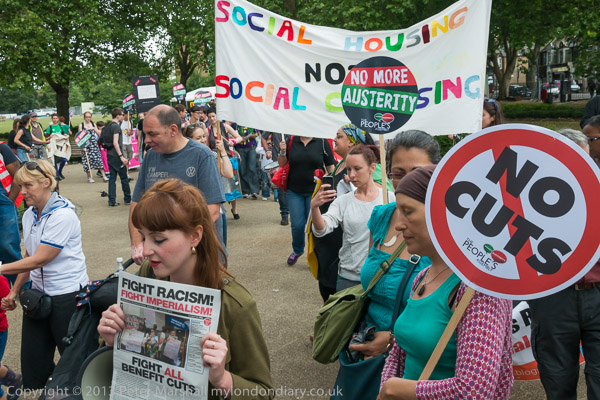
As I wrote ten years ago “We need a government – national and local – determined to act for the benefit of ordinary people, making a real attempt to build much more social housing, removing the huge subsidies currently given to private landlords through housing benefit, legislating to provide fair contracts for private tenants and give them decent security – and criminalising unfair evictions.” We haven’t got one.
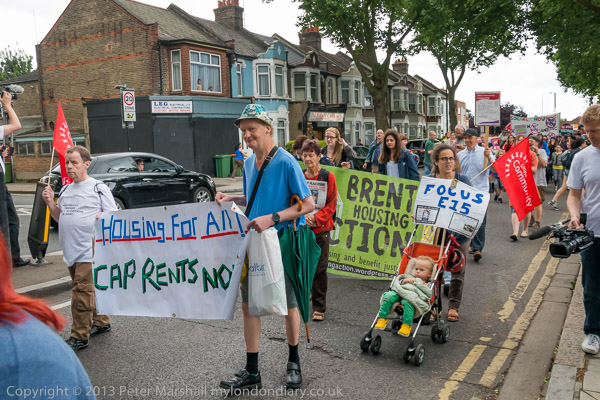
You can read more about the march in East Ham organised by Focus E15 Mums to demand secure housing, free from the threats of eviction, soaring private rents, rogue landlords, letting agents illegally discriminating, insecure tenancies and unfair bedroom tax and benefit cap on My London Diary.

The march was supported by housing protest groups from Hackney, Brent and from South London and organisations including BARAC and TUSC. I was surprised to see the popular support it received on the streets with even some motorists stopping their cars to put money in the collection buckets.
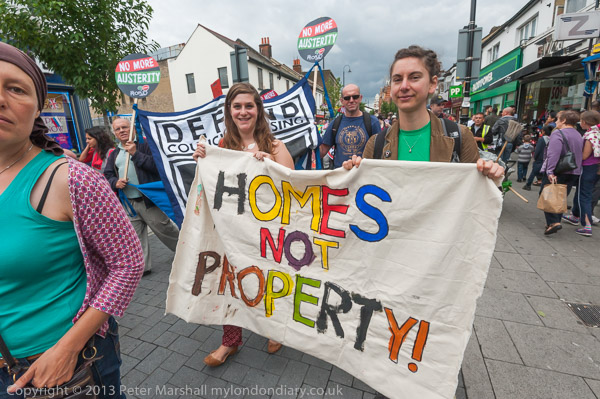
More at Focus E15 March for Decent Housing.
Save our Surgeries on NHS 66th Birthday – Whitechapel
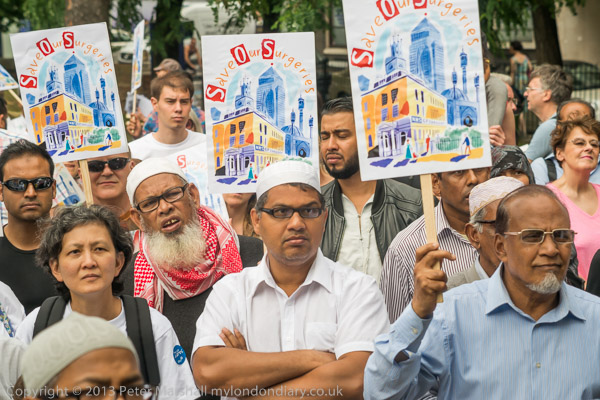
The National Health Service began on 5th July 1948 and on its 66th anniversary the Save our Surgeries campaign against health cuts in Tower Hamlets marched to Hackney in a show of opposition to health cuts, surgery closures and NHS privatisation.

The setting up of the NHS was opposed by the Conservatives and they and the doctors and dentists associations forced many compromises which led to it being a less than comprehensive health service, though still a great national achievement and one which for we are justly proud of.
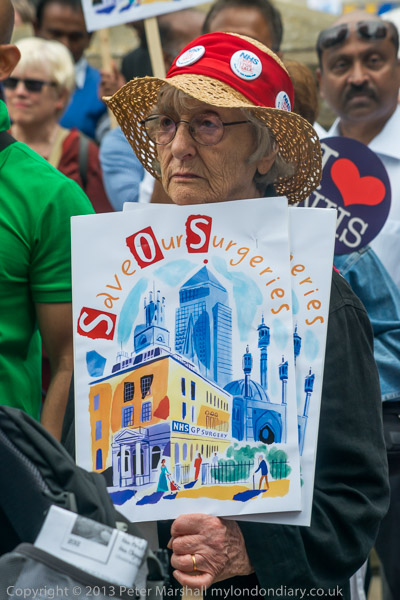
Many doctors made – and some still make – large incomes from private practice and fought to keep these rather than back a universal system wholeheartedly. But in more recent years a huge private medical system has grown up alongside the NHS and more and more people are covered through work schemes providing private medical cover.

This private system has grown parasitically on the state medical system and all governments over the past thirty or more years have found ways to syphon off money to it, by allowing it to tender for various more straightforward aspects of NHS services.
Successive governments have also created huge administrative burdens on the NHS, setting up new levels of administrators which oversee and to some extent override clinical decisions. But financially the most disastrous impact on the NHS comes from the various PFI agreements, largely made under New Labour, which enabled the building of new hospitals without the costs appearing in the government’s debts, but tied the trusts running the hospitals into huge debt repayments and the kind of service contracts that make replacing a light bulb cost £1200.

General practice was set up in 1948 under doctor-owned surgeries but increasingly these are now owned by healthcare companies after New Labour in 2007 allowed larger companies to buy them up. Operose Health, part of US healthcare giant Centene Corporation in 2022 was running 70 practices and a BBC Panorama report showed they were only employing half as many doctors as average practices, while employing six times as many physician associates (who have only 2 years of medical training rather than the 10 for GPs) who were being inadequately supervised.

Unfortunately Labour policy appears to be to increase the reliance – and transfer of funds to the private sector rather than reduce it. You can read more about their position in the 2023 Tribune article Labour’s Love Affair with Private Healthcare by Tom Blackburn, which aslo sets out clearly the financial links of Wes Streeting to private healthcare. And of course he is not the only Labour MP with a financial interest. Labour might sort out a few of the problems but the creeping privatisation seems sure to accelerate.

The protest in East London was over changes in the funding of NHS surgeries which have failed to take into account the extra needs of deprived innner-city areas and were expected to lead the closure of some surgeries as well as other NHS cuts, particularly those happening because of the huge PFI debt from the new Royal London Hospital.
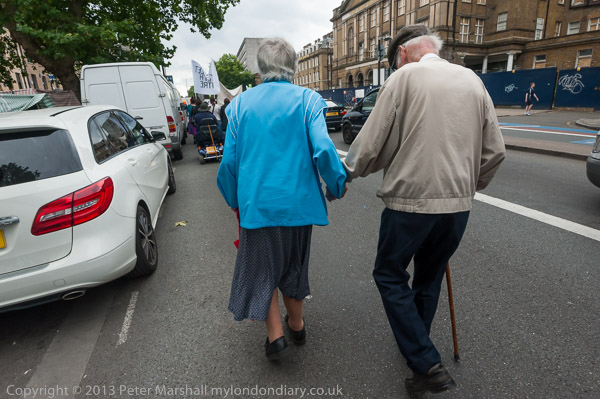
There was a brief rally in Altab Ali Park before the march with speeches by local politicians and health campaigners before the crowd of several hundreds set off down the Whitechapel Road on its way to London Fields in Hackney where it was to meet up with other protesters for a larger rally. But I left the march at Whitechapel Station.
More at
